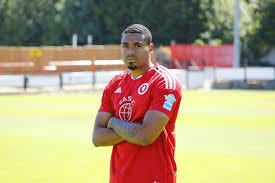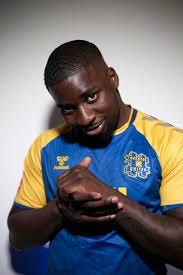The Rise of the Influencer Footballer: What Does This Mean for the Industry?
As footballers build personal brands through social media, they’re reshaping career paths, fan engagement, and commercial opportunities in the game.
There has been much discussion around the Ballers League, both positive and negative. However, its emergence signals a significant shift in football’s landscape, particularly for the players themselves. We now live in an era where social media presents amateur, semi-professional, or professional footballers with numerous opportunities to leverage their talent, build an audience, foster loyalty, and ultimately own their audiences.
Audience ownership is key. It provides players with direct access to their followers, enabling them to work with brands that want to engage specific demographics, especially Gen Z. The traditional route to professional football remains the gold standard, but different paths now exist to make an impact in the sport—both on and off the pitch. This shift echoes themes from my first article on Mario Götze and the rise of the multi-faceted footballer (see below).
Beyond the Field: Embracing Personal Branding in the Digital Era
Now more than ever personal branding seems to be growing in importance. A majority of us now can’t keep our hands or lives away from our phones and they are quickly defining how we interact with one another. This makes building your brand digitally a great opportunity to authentically connect with those around you and social media is where we tend to se…
The modern athlete is no longer solely defined by their on-field performance but also by their ability to cultivate a personal brand off the pitch and shape it in a way that makes sense for them. For non-professional players, content creation alongside their playing career offers a secondary income stream and bolsters their brand, benefiting them within and beyond football.
Attending the opening night of the Ballers League UK reinforced this perspective. Having played football and experienced the non-league scene firsthand, I see this as an ideal platform for semi-professional players to showcase their abilities on a grand stage, with Sky Sports coverage amplifying their reach. John Terry, when asked by one of the commentators yesterday, even stated that this league could be a gateway back into professional football, making it a vital addition to the evolving football ecosystem. Beyond concerns over commercial sustainability and revenue generation, leagues like this empower players while integrating entertainment elements that engage new audiences. The game’s future must embrace both tradition and innovation to ensure its continued growth.
Two standout examples of this shift are Tyrique Hyde and PK Humble. Both had stints in professional and non-league football before establishing influential personal brands across social media. PK Humble, with a combined 555k followers across Instagram, TikTok, and X, has leveraged his charisma to feature on the Sidemen’s new show INSIDE while maintaining his football journey—he even scored the first-ever goal of Baller League UK for his team, Yanited FC. Similarly, Tyrique Hyde has 1 million followers on Instagram and nearly 500k on TikTok, numbers to which his appearance on Love Island was a significant contributing factor, allowing him to explore new content opportunities while continuing to play football. These players have capitalised on their authenticity to build loyal audiences, opening doors beyond the pitch.
Key Takeaways for Brands, Rightsholders, and Players
The rise of the influencer footballer presents a wealth of opportunities for brands, rightsholders, and players looking to engage new audiences:
For Brands: Collaborating with influencer footballers offers access to engaged, niche communities. Authentic partnerships with these players can yield higher engagement rates than traditional athlete sponsorships, particularly among younger demographics.
For Rightsholders & Clubs: Football organisations should consider integrating influencer footballers into their content strategies, using them as bridges to engage digitally native audiences and enhance fan engagement.
For Players & Agents: Building a personal brand is no longer optional—it is essential. Players should proactively manage their digital presence, create compelling content, and explore partnerships that align with their brand values to ensure longevity in and beyond football.
The influencer footballer is not a fleeting trend—it is the future. The ability to own an audience and dictate one’s narrative is an invaluable asset. The footballers who recognise and embrace this shift will shape the industry’s next evolution. The game is changing, and those who adapt will lead the way.







